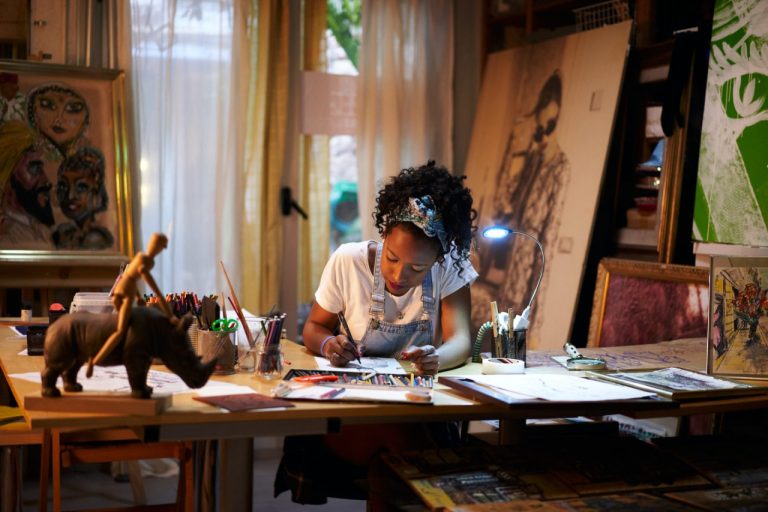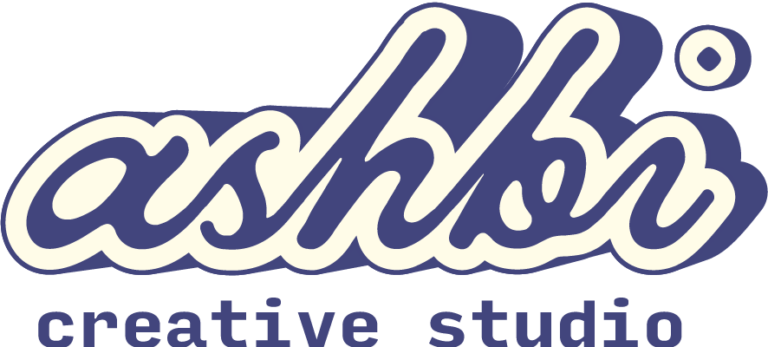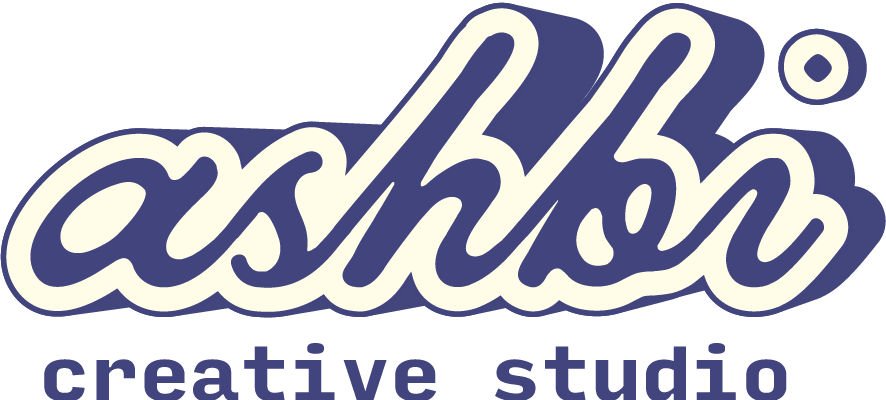Are you considering a career change but unsure which path to pursue? Are you passionate about branding and debating between the jobs of a brand designer or a brand strategist? With so many options in this digital era, it cannot be easy to decide which role is best for your talents; here at Ashbi Creative Studio, we’re here to help.
In this blog post, we’ll dive into the differences between these two roles and shed light on which could be more suitable for your particular skill set. Discover what it takes to become a successful designer or strategist!
Brand Designers and Brand Strategists
Whether you are launching a new product or revamping an existing one, it is crucial to have a strong brand image that resonates with your target audience. This is where brand designers and brand strategists come in.
Brand designers are responsible for creating a visual identity that captures your brand’s essence while making it recognizable and memorable. Meanwhile, brand strategists work behind the scenes to shape the narrative around your brand, ensuring that it connects with consumers on a deeper level.
Together, these professionals can help you create a brand that looks great and communicates your values and beliefs in a way that attracts and retains loyal customers. So if you are looking to take your brand to the next level, it might be time to consider enlisting the help of a brand designer and strategist.
a. What is a Brand Designer
A brand designer is a creative professional specializing in creating and managing a company’s brand identity. They are responsible for creating visually appealing logos, marketing materials, and packaging that reflects the company’s personality and values.
They work closely with other marketing team members to develop a cohesive brand strategy that speaks to the target audience.
A great brand designer has not only an eye for design and a deep understanding of consumer behaviour and market trends. Ultimately, they aim to create a solid and memorable brand that resonates with customers and stands out from competitors.
b. What is a Brand Strategist
In marketing and advertising, a brand strategist is a crucial player on the team. They are responsible for assessing every angle of a brand and defining its identity, messaging, and positioning in the market.
Essentially, they create the blueprint that outlines how a brand should be perceived by its target audience. This requires in-depth market research, analysis of competitors, and a deep understanding of the consumer psyche.
A successful brand strategist can develop creative solutions to set their client’s brand apart, leading to increased brand awareness, customer loyalty, and business growth.
Benefits of Working as a Brand Designer
Working as a brand designer can be both creatively fulfilling and financially rewarding. While designing logos or packaging may be the most visible aspect of the job, there are also other benefits to consider.
For one, brand designers often work with a team of other creative professionals, allowing for collaboration and learning across various skill sets. Additionally, the work can often be flexible, allowing for a healthy work-life balance.
Finally, the impact of a well-designed brand can be significant, helping a company stand out in a crowded marketplace and ultimately boosting sales. Working as a brand designer can provide a challenging and fulfilling career path.
Benefits of Working as a Brand Strategist
They are working as a brand strategist offers numerous benefits to those passionate about creativity and business savvy. Firstly, brand strategists are responsible for developing and implementing marketing plans that ultimately shape how a company is perceived by its audience.
This level of influence leads to a strong sense of ownership and pride in one’s work. Additionally, a career as a brand strategist allows for constant innovation and staying ahead of the marketing curve.
Working with a diverse range of clients and projects also offers excitement and variety that many other jobs cannot match—overall, working as a brand strategist provides both personal and professional satisfaction, making it a good career choice for those who are up for the challenge.
Required Skills for Both Career Paths
To succeed in any career path, specific required skills are essential. For instance, a good work ethic, strong communication skills, and the ability to work under pressure are crucial irrespective of the profession.
However, there are specific skills that are required for different careers. In the case of the medical field, critical thinking and problem-solving abilities are crucial. On the other hand, those pursuing a career in technology must have a firm grasp of coding languages and be proficient in different software applications.
Nonetheless, some skills, such as teamwork and adaptability, are universally critical in any profession. While different career paths require specific skills, developing a well-rounded set of strengths complementing your chosen work is crucial.
a. Technical Skills
Technical skills are becoming increasingly valuable in the job market, especially in today’s digital age. These skills can range from proficiency in programming languages to understanding complex software systems. Employers across various industries highly seek the ability to think logically and solve problems with technology.
As technology continues to advance, having technical skills has become increasingly important. It’s not just about being able to use technology but also about creating, developing, and maintaining it. Emphasis on technical skills will continue to grow in the workforce as businesses strive to stay at the forefront of technological innovation.
b. Creative Thinking Skills
Creative thinking skills are essential for success in today’s fast-paced and ever-changing world. Thinking outside the box and creating innovative solutions to problems is a valuable skill that can set you apart from the competition.
Creative thinking involves looking at situations from different perspectives, generating new ideas, and being open to trying new things. It requires a willingness to take risks and venture into uncharted territory, which can be intimidating initially but ultimately leads to growth and success.
With practice and persistence, anyone can develop their creative thinking skills and unlock the power of their imagination.
Educational Requirements to Become a Brand Designer or Strategist
It would be best to acquire a solid education to become a successful brand designer or strategist. This requires more than talent and creativity; you must gain knowledge and skills to thrive in this competitive field.
Most employers expect at least a bachelor’s degree in a related discipline such as marketing, graphic design, or communications. Some may also require a master’s degree or other specialized certifications. While pursuing your education, be sure to develop a strong portfolio that showcases your best work.
The best way to gain real-world experience is through internships, freelance work, or entry-level positions that allow you to collaborate with a team of experienced professionals. With the proper education and experience, you can set yourself up for a successful brand designer or strategist career.
Professional Networking Organizations that are Helpful for Both Careers
In today’s competitive job market, networking is more important than ever. Professional networking organizations offer valuable opportunities for like-minded individuals to connect and grow their careers.
These groups bring together people with similar interests, backgrounds, and aspirations, providing a platform for members to share knowledge, advice, and resources. From industry-specific groups to larger, more general organizations, professionals have countless options to expand their networks.
Whether attending events, participating in online forums, or simply making new connections, joining a professional networking organization can provide a wealth of resources to help propel your career forward.
In conclusion, it is always essential to have the appropriate skills and education when you decide on a career path in branding. Whether that means becoming a Brand Designer or Strategist, if you make sure you have what it takes to succeed, you’ll be able to enjoy a stable career doing creative work with exciting people.
Remember, it’s not just about developing technical abilities: curiosity and applying innovative thinking concepts to any problem sets you apart. Emerging designers and strategists should explore professional networks like AIGA or IBDA to get more industry involvement. Keep exploring new opportunities; the branding community is ever-shifting, and staying up-to-date is essential. Don’t forget your network too!
Many connections can come from the people around you, so keep in contact regularly for potential job openings and fresh advice. Dedication and hard work can make anyone a successful Brand Designer or Strategist!









